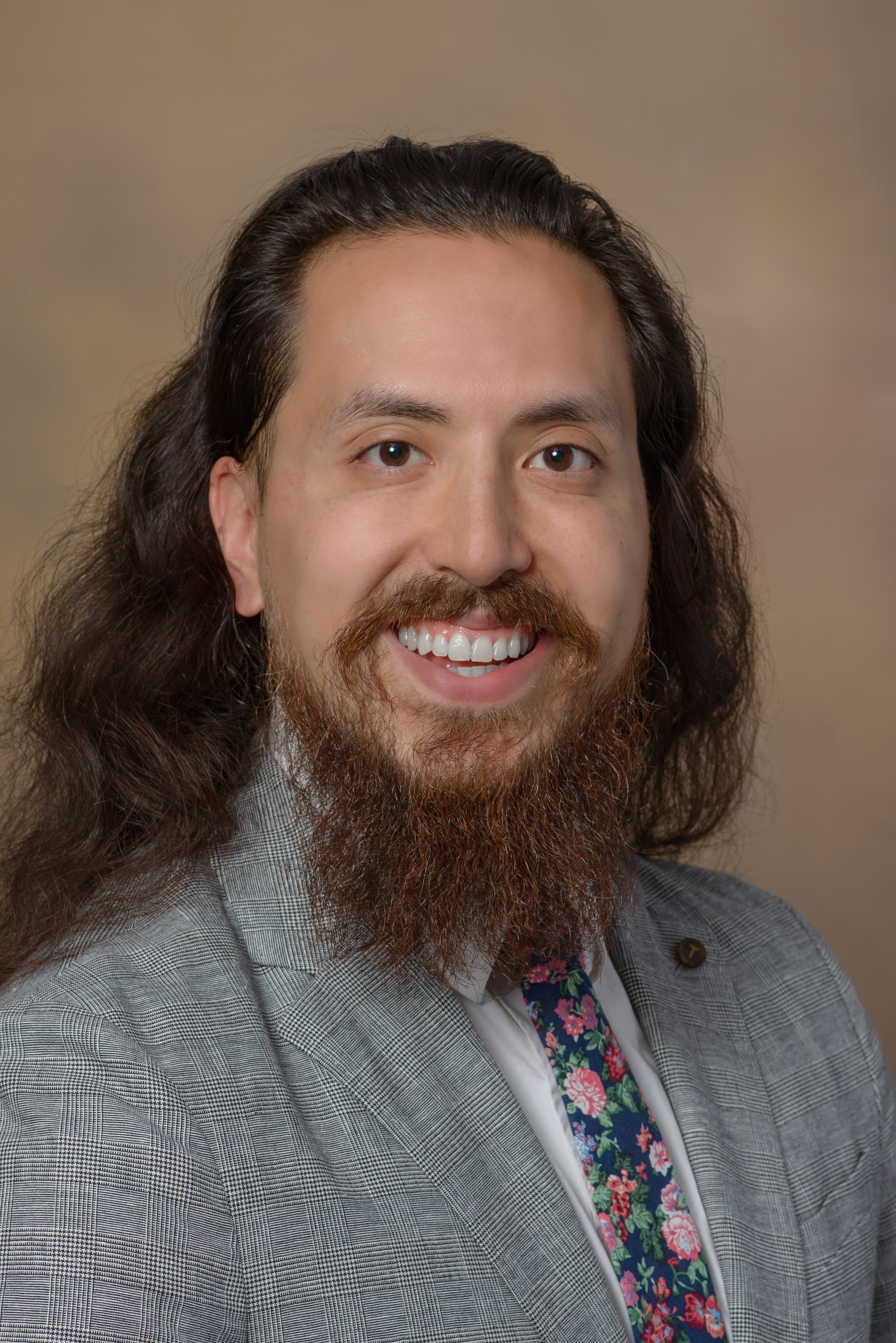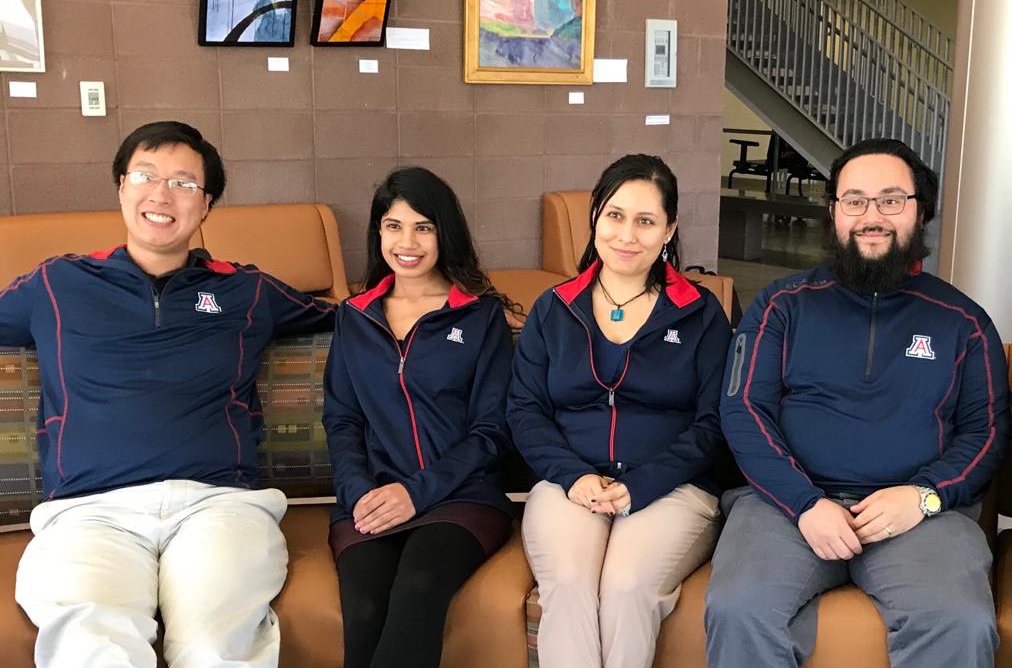
The standard interpretation of the centuries-old Irish blessing “May the Road Rise Up to Meet You” is that success is offered to you with ease and by grace. It is an interpretation based upon good things happening to a person or, at best, goodness happening for a person.
Perhaps this interpretation is lacking. Perhaps it does not consider the influence that one has upon the journey. It assumes the world simply happens “to” someone or “for” someone. But what if we happen “to” the world? More importantly, what miracles manifest when we happen “for” the world?
Today, your journey has led you here, to a place many before you have ventured. Our Department of Psychiatry, established as one of the original departments at the University of Arizona College of Medicine, has been training dynamic, passionate, and expert physicians for decades.
The goal of this Psychiatry Residency Program is to enable residents to develop expansive psychiatric skills to effectively practice psychiatry in a multitude of settings. Residents develop these skills through caring for a wide range of patients of different ages, socioeconomic statuses, backgrounds, and diagnoses across numerous clinical areas. These areas include academic, community, federal, private, residential, emergency, tribal healthcare, collaborative care, and subspecialty care settings. Through systematic supervision and didactics, our residents develop robust knowledge and clinical acumen in general psychiatry.
Our graduates end up in diverse and desirable jobs and competitive fellowship positions immediately following residency. Many graduates stay in the local community, some even remain in our department (either in fellowship or as faculty). Our graduates utilize their skills to practice not only as physicians, but as leaders, educators, administrators, policymakers, volunteers, patient advocates, and artisans.
Our educational program is invested in community representation, especially in recruiting trainees and staff, serving our patient populations, and in providing comprehensive, humanistic treatment. This approach is designed to teach residents the fundamental skills required for ABPN certification and practice in psychiatry. Our graduates for +15 years have a 100% success rate on the ABPN board exam.
 We also actively assist residents in developing their special interests, such as child psychiatry, forensic psychiatry, integrative medicine, psychosomatic psychiatry, geriatric psychiatry, addiction medicine, neurotherapeutics, and psychiatric research. We emphasize a strong academic orientation with attention to the excellence of the clinical rotations. Orienting toward an excellent residency lies in balancing supervised clinical work, stimulating and comprehensive didactic programming, and exciting research opportunities in a supportive and flexible environment.
We also actively assist residents in developing their special interests, such as child psychiatry, forensic psychiatry, integrative medicine, psychosomatic psychiatry, geriatric psychiatry, addiction medicine, neurotherapeutics, and psychiatric research. We emphasize a strong academic orientation with attention to the excellence of the clinical rotations. Orienting toward an excellent residency lies in balancing supervised clinical work, stimulating and comprehensive didactic programming, and exciting research opportunities in a supportive and flexible environment.
In my 12 plus years in the department, I have spent time with students, residents, fellows, faculty, and staff, who I consider to be some of the most thoughtful, fascinating, dedicated, and tenderhearted humans I have ever met. It is a team of hard-working experts partnering with others to improve the lives of patients. To borrow from a portion of our residency training manual:
“The culture of the program is such that certain elemental truths are held and honored. In all facets of your life, you, the resident, are a human being first. The wise, gratifying, healthy, and sustainable pursuit of physician training towards the practice of psychiatry must be a mindful and soulful expression of your humanity and performed in this order – not in its reverse. You are a human being first; performing psychiatry as an expression of your humanity. You are not a physician first and a human being second…we understand that being a resident is a difficult and, at times, stressful transition. Resources and mechanisms are in place to help you care for your personal needs, to promote your successful development as a competent, skillful and caring physician.”
I wonder if this is the uncommon, yet necessary, meaning of the road rising upward. When generations of dedicated persons have set the path before you, across valleys, beyond the uncertainty of shadows, and toward new and daring heights, then the path that carries you becomes the path you build to carry others. A wise psychiatrist, once taught me, the best answer to that age-old question: “What is more important – the journey or the destination?” Her answer: “It’s the company you keep.”
Thank you for your interest in psychiatry. Please enjoy our website filled with the stories and faces of people working towards better mental health outcomes for our patients, our colleagues, our communities, and all the places we call home. I believe you are solidly on the right path; may you keep it in good company. Welcome to the University of Arizona Psychiatry Residency Program. May the road rise up to meet you!
Apply Here for the UA Residency Program
Jason Curry, DO
Vice Chair, Education
Program Director, Psychiatry Residency Program
Associate Professor of Clinical Psychiatry
University of Arizona College of Medicine - Tucson
Email: Jason.Curry@bannerhealth.com

